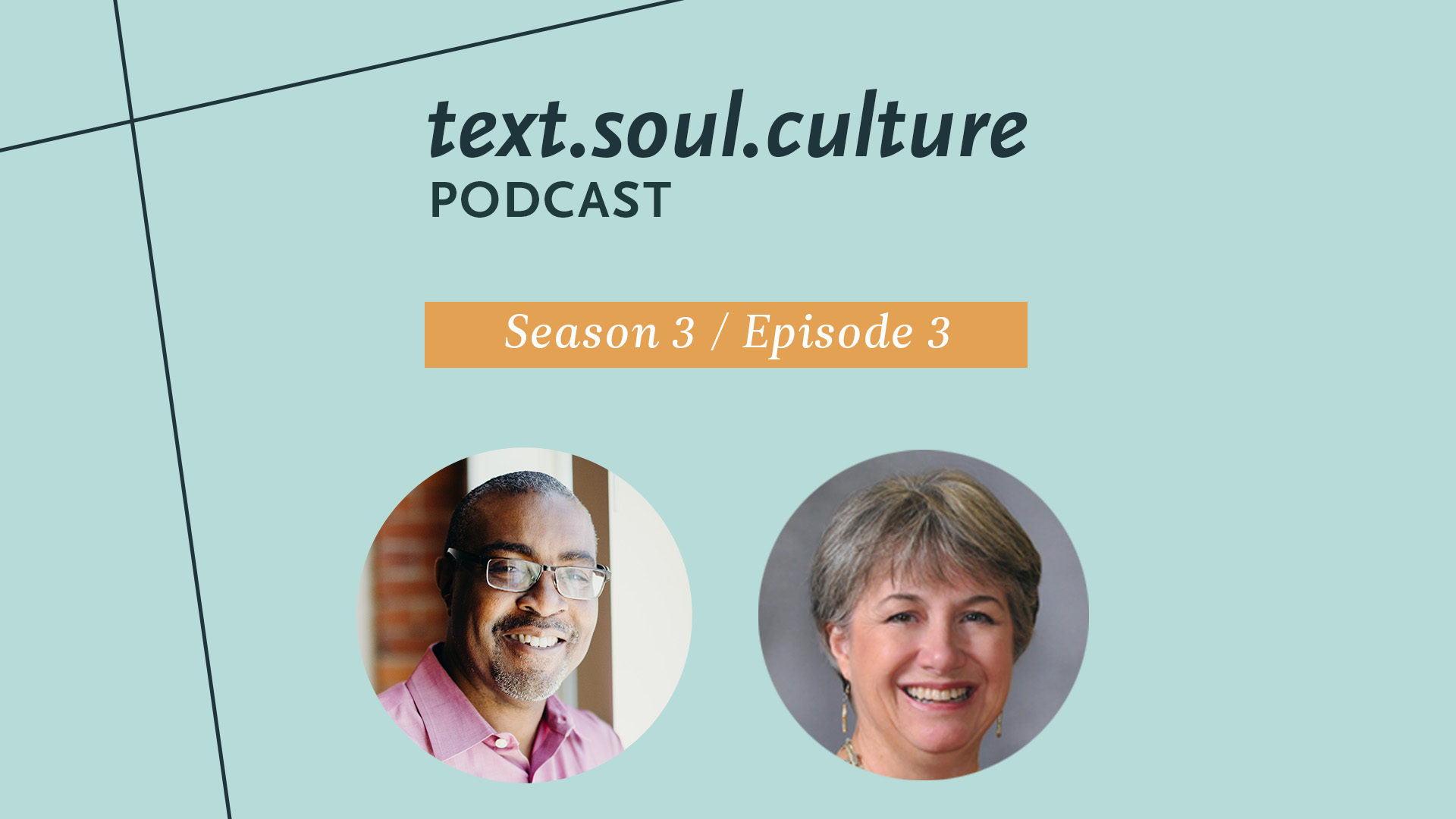On this episode of text.soul.culture, Dr. J. Derek McNeil, Acting President and Provost, talks with Dr. Esther Lightcap Meek, a philosopher, professor, and author whose work revolves around knowing—how we know what we know, and why it matters. Dr. Meek visited The Seattle School in November 2018 for the Stanley Grenz Lecture Series, and while she was here she dropped by our recording studio to share more about her work and the story that led her to it.
Esther: “Reality is person-like, and our essential human desire is to know, to understand, to have intimate contact and communion with reality.”
There is a contagious sense of delight in how Esther presents her ideas, and it’s a bit sneaky: She’s engaging dense, complex theories, and if you’re not already into philosophy it might be easy to say “Oh I’m not interested in that,” or “That’s over my head.” But if you listen, you might start to hear a contagious, almost childlike joy. Esther describes it as “exuberant realism”—a grounded, thoughtful desire to approach the big questions of life with vibrant love and an openness to delight. With this posture, philosophy is not about abstract theory detached from our day-to-day realities; it’s a discipline that invites us to wrestle with the deep needs of our time in new and meaningful ways.
“There’s one thing you need to be philosophical, and that is to be born. Because to be human is to be philosophical.”
Esther: “It has everything to do with love of God, but it has everything to do with love of his reality, too.”
Much of this conversation stems from the conviction that our “defective modernist epistemology” and our attempts to control reality are problematic, and that we are in need of a new perspective on our relationship to the real. Esther shares how, in her teaching and writing, her hope is to cultivate “lovers of the real”—individuals whose adoration for God and God’s creation compels them to ask better questions, to pursue meaningful work, and to welcome each other with hospitality and delight. Derek and Esther discuss how that turn toward others is also reflected in what we know of human psychology: to be gazed upon with delight, and to offer delight toward others, is a central part of developing an integrated identity.
Esther: “To be seen with delight by someone else is something that allows you to find yourself in that gaze.”
Derek: “In the current political climate of our country, it’s been hard to delight in each other, very hard to see beauty. What we seem focused on is ugliness, and our inability to see each other and delight in each other has been a real challenge.”
Esther’s insights and philosophies have profound implications on how we conceive of God, how we serve each other, and how we respond to trauma and dis-integration in our world. We are deeply grateful for her work and for the generosity of her presence with us. Thanks to Dr. Esther Meek for joining us, and thanks to all of you for listening!
Resources to Go Deeper
- For more from Esther Meek, you can watch her presentation from the 2018 Stanley Grenz Lecture Series, including a panel conversation with Dr. Dan Allender and Dr. Chelle Stearns: Integration in a Dis-Integrated World.
- Esther’s writing has been an important presence in our classrooms for many years. To jump into her work for yourself, a good starting point might be A Little Manual for Knowing.
- Esther cites Francis Schaeffer’s book The God Who Is There as helping her realize at a young age that her questions about God and the world were not sin, they were philosophical.
- Much of Esther’s ideas have been developed in conversation with the work of Michael Polanyi, whose text Personal Knowledge: Towards a Post-Critical Philosophy seemed like the only voice in Esther’s philosophical quest that addressed her deepest questions about reality.


